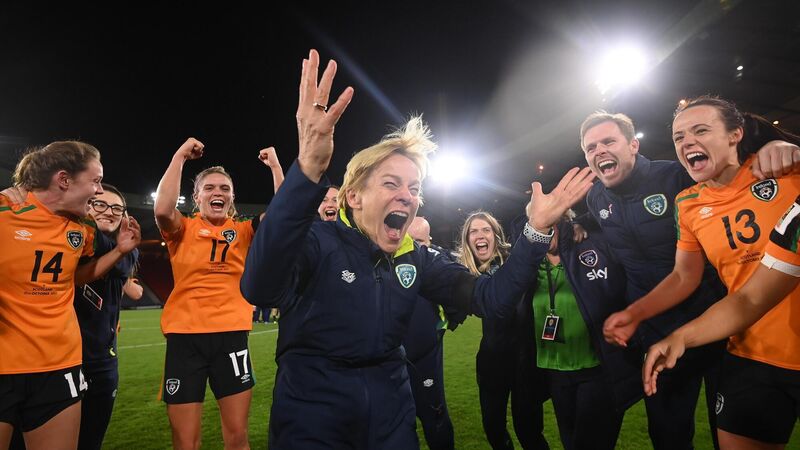Paul Rouse: Under layers of truth and history, Pauw's 'respect' should be lasting chorus

THE HEART OF THE MATTER: Republic of Ireland manager Vera Pauw celebrates with her players after the FIFA Women's World Cup 2023 Play-off match between Scotland and Republic of Ireland at Hampden. Pic: Stephen McCarthy/Sportsfile
Vera Pauw made history this week by leading the Irish women’s team to a first ever World Cup final. She followed this with a public history lesson that revealed once more her decency, her courage and her deep intelligence.
Her response to the video of Irish players singing “Ooh ah, up the 'Ra',” while celebrating their 1-0 win over Scotland, offers a way for Irish people to think about their recent history in a fashion that is almost entirely absent at the moment.









